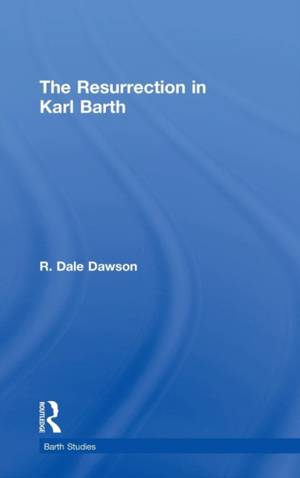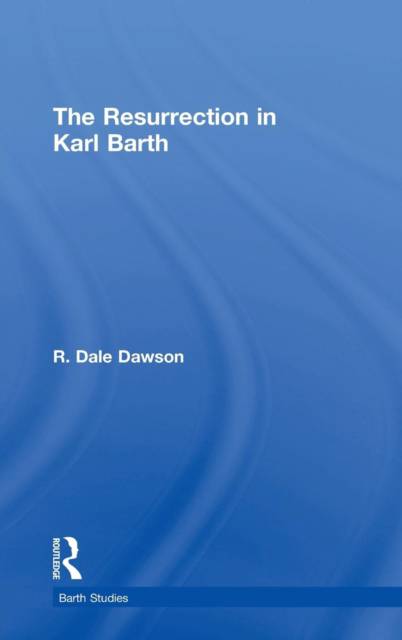
- Afhalen na 1 uur in een winkel met voorraad
- Gratis thuislevering in België vanaf € 30
- Ruim aanbod met 7 miljoen producten
- Afhalen na 1 uur in een winkel met voorraad
- Gratis thuislevering in België vanaf € 30
- Ruim aanbod met 7 miljoen producten
Zoeken
€ 290,45
+ 580 punten
Uitvoering
Omschrijving
Karl Barth repeatedly spoke of the centrality and unparalleled significance of the resurrection of Jesus Christ for his theological understanding, yet a clear grasp of its nature and scope in Barth continues to find little expression in scholarly literature. This book seeks to draw out the theological substance and systematic implications of Barth's thinking on this theme. Barth's mature understanding of the resurrection concentrates upon the transition from the objective achievement of reconciliation culminating in the crucifixion and death of Jesus Christ to its subjective appropriation in the life of the believer, all within a thoroughly christological context. The resurrection may be described as the way of the crucified Lord to others, and is, for Barth, the essential and efficient link between christology proper and the extension of Christ's saving work to others.
Specificaties
Betrokkenen
- Auteur(s):
- Uitgeverij:
Inhoud
- Aantal bladzijden:
- 256
- Taal:
- Engels
- Reeks:
Eigenschappen
- Productcode (EAN):
- 9780754655558
- Verschijningsdatum:
- 28/12/2006
- Uitvoering:
- Hardcover
- Formaat:
- Genaaid
- Afmetingen:
- 156 mm x 234 mm
- Gewicht:
- 539 g

Alleen bij Standaard Boekhandel
+ 580 punten op je klantenkaart van Standaard Boekhandel
Beoordelingen
We publiceren alleen reviews die voldoen aan de voorwaarden voor reviews. Bekijk onze voorwaarden voor reviews.











